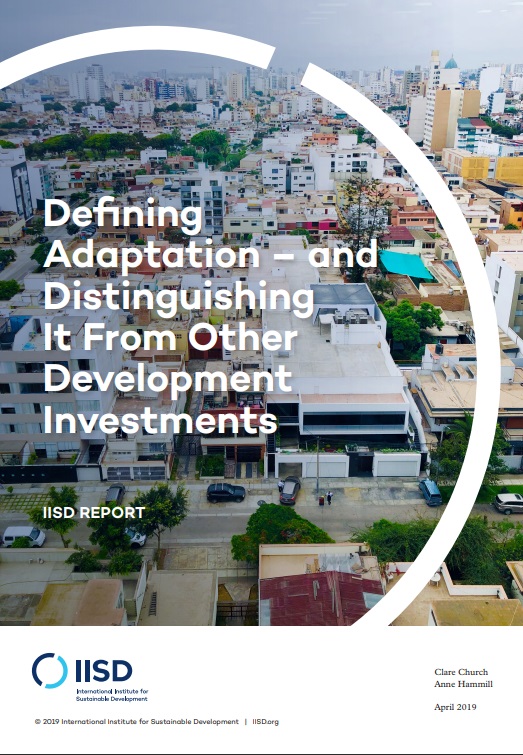🌿 COP 30 - Building a Greener Tomorrow
The 30th UN Climate Change Conference (COP 30) is taking place in Belém, Brazil. Stay informed about global climate actions, negotiations, and live sessions from 10 – 21 November 2025.
Get Updates
Defining Adaptation and Distinguishing It from Other Development Investments

Files
Date
January, 2024Author(s)
- Clare Church
- Anne Hammill
Abstract
As the effects of climate change become more discernable in ecosystems, economies and communities, the urgency of understanding, preparing for and adjusting to its impacts grows. Indeed, adaptation has become integral to responding to the climate crisis and securing sustainable development outcomes around the world. While there is a growing consensus around the need for adaptation, a unifying operational definition does not yet exist particularly for guiding resource allocation and/or investment decisions. However, researchers and practitioners alike agree on some of its core features: adaptation is an ongoing, iterative process that precludes characterizations of a final adapted state; its overarching aim is to reduce the vulnerability of people and places to both current and future risks and changes; it requires climate information even if uncertain or rudimentary-to understand why and what kind of adjustments are needed; its execution and benefits are often context-specific, as both the manifestations of climate change and abilities to respond to them are shaped by local circumstances; and adaptation often involves planning for or managing uncertainty..
Citation
Defining Adaptation and Distinguishing It from Other Development Investments; 2019, The International Institute for Sustainable Development; P31
Publisher
The International Institute for Sustainable Development
Rights Holder
The International Institute for Sustainable Development
URI
https://knowledgehub.pksf.org.bd/collections/OGhTVnYwaEQ1ZUFESlovR2dpNjdMUT09
